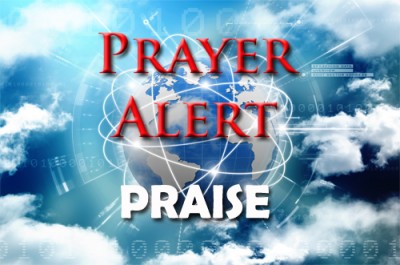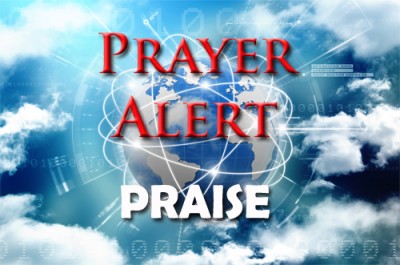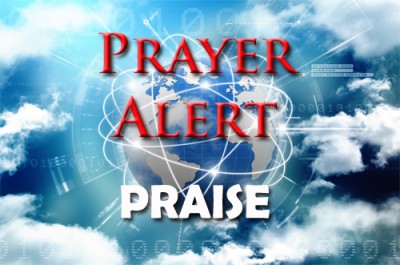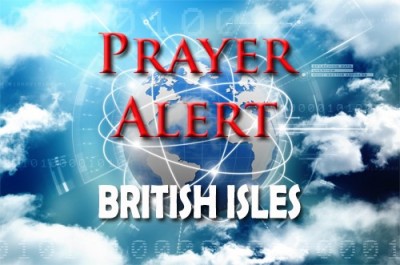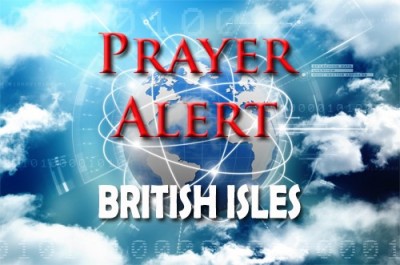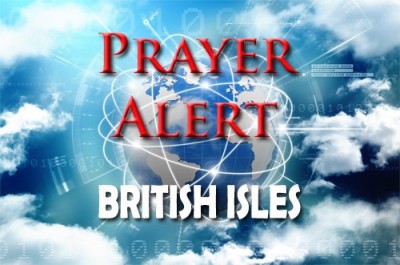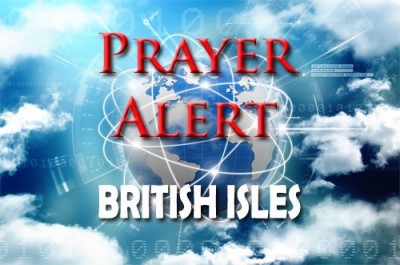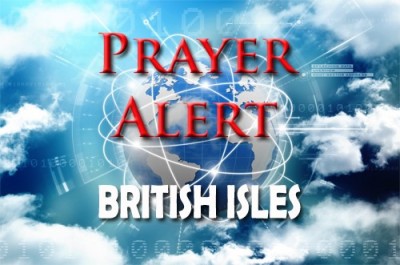British Visas for Afghan translators
31 May 2019On 11 April you were asked to pray for Afghan translators, living in fear of retribution from the Taliban because they once served alongside British forces in wartime situations. The men and their families were promised visas for UK entry, but years later they are still in hiding in Afghanistan. You prayed for ‘the MoD to honour visa promises swiftly'. (Proverbs 3:23) On 27 May the media reported ‘the first Afghan translator arrived in the UK to start a new life with his family after years of death threats from the Taliban.’ Niz, his wife and their five children will live near Coventry, after living five years ‘in the shadows' because Niz worked as interpreter and was branded an infidel spy. Last week he became the first Afghan translator to begin a new life in Britain.
Answered prayer: clergy help Home Office
23 May 2019In March, Prayer Alert intercessors prayed for an overhaul of the ethos of the Home Office, after Iranian Christian converts’ asylum applications had been unfairly rejected. Clergy have now been drafted in to teach religious literacy to hundreds of Home Office case workers tasked with deciding on asylum claims that involve religious conversion and persecution. The new training was developed with the support of Church House, Westminster, and other faith groups. Rev’d Mark Miller, vicar of Stockton, advised the Home Office on the training, and attended the first case workers’ meeting. He said, 'In the session, I asked staff what they thought was basic knowledge. Most of what they suggested wasn’t basic knowledge, it was “name the Ten Commandments”, rather than the significance of a faith in Jesus.’
Answered prayer: Celebration of Hope
23 May 2019Last week you prayed for thousands of pastors and their congregations as they worshipped together in Singapore, heard inspiring teaching, and stepped out in faith for a bountiful harvest. We have heard from the organisers that there were 5,485 enquiries: 1,910 about salvation, 1,525 rededication, 1,006 interested to find out more. 170 wanted to join a church. The three-day celebration could not have happened without the 17,000 ushers, counsellors, security crew, production crew, intercessors, interpreters, and countless others. Praise God for their willing hearts and labour of love.
Outreach: Trypraying
23 May 2019Trypraying is for the non-religious who don’t do church. Trypraying banners are appearing on buses, billboards and buildings. Some fly on a wind farm in Scotland, on the turnstiles of a railway station and one was on the route of the Tour de Yorkshire. Why? People pray when they see them, and it opens up conversations around faith. 400+ churches are currently using Trypraying across the UK and 40,000 booklets were printed and shipped to the USA, with 10,000 children's booklets and 10,000 youth booklets. A Spanish edition is coming soon. Churches are using Trypraying, as is a whole diocese in Leicestershire! Other churches are joining it with 'Thy Kingdom Come'. How does it work? Each person in a congregation thinks of and prays for a person, and then they give that person a Trypraying booklet to use and then hand on to someone else.
Outreach: Day of the Christian Martyr (29 June)
23 May 2019According to church tradition, 29 June marks the martyrdom of the Apostle Paul. This year, Christians around the world will take time on that day and throughout that weekend to honour the legacy of those who have sacrificed their lives for the advancement of the gospel. Churches are invited to register and receive links to download free digital resources to inspire congregations, small groups, classes and families to witness boldly for Christ.
Former magistrate challenges government
23 May 2019In 2016 Richard Page was sacked as a magistrate and lost his position as a non-executive director at an NHS trust, after saying that it was best for adopted children to be placed in families headed by a mother and father. His barrister has now told an appeal tribunal that judges should not be removed because of political pressures.The case represents a watershed moment in this nation’s history. The tribunal is tasked with ruling on whether HM Courts and Tribunal Service (the symbol of justice and fairness in our nation) can dismiss someone for holding and expressing Christian beliefs - sincere beliefs demonstrable through social science, biology and psychology. Pray for Richard and his family as they cope with this long-drawn-out situation. See also
British Steel collapse
23 May 2019As the Government looks for a new owner for British Steel, Liberty Steel has been flagged as a potential buyer, with a clear interest in the Scunthorpe plant. At present 5,000 jobs are at risk: 3,000 at Scunthorpe, another 800 in north-eastern England, and the rest in various sites around the world. The workers’ wages this week have been paid, and the Government will pick up the bill from now on. Pray for the workforce, in Scunthorpe and elsewhere, now in shock; for the families with mortgages on their homes not knowing where their next paycheck will come from; and for local shop owners who rely on steelworkers for their income. Pray for vision, skill, and wise investment in the British steel industry, enabling it to flourish and for jobs to be retained. See
RSE (relationships and sex education) is a contentious issue. Several schools in Birmingham recently suspended the teaching of an LGBT+ inclusive programme, No Outsiders, after protests from parents. Stephen Fry and others wrote to the education secretary saying that political, religious and cultural sensitivities should not be allowed to thwart mandatory age-appropriate RSE from the first year of primary education. The signatories say that lessons should be LGBT+ inclusive and ‘inform older pupils about sexual pleasure for LGBT and how to achieve it for themselves and a partner’. They call for statutory enforcement of even more explicit teaching about sex; for further normalisation and promotion of homosexual behaviours and that same-sex, homosexual, and bisexual relations must be presented as equally valid, with no faith school opt out, or parental right of withdrawal. They said, ‘Our goal is to ensure that pupils leave school emotionally and sexually literate and able to enjoy fulfilling, caring and enduring relationships.’
